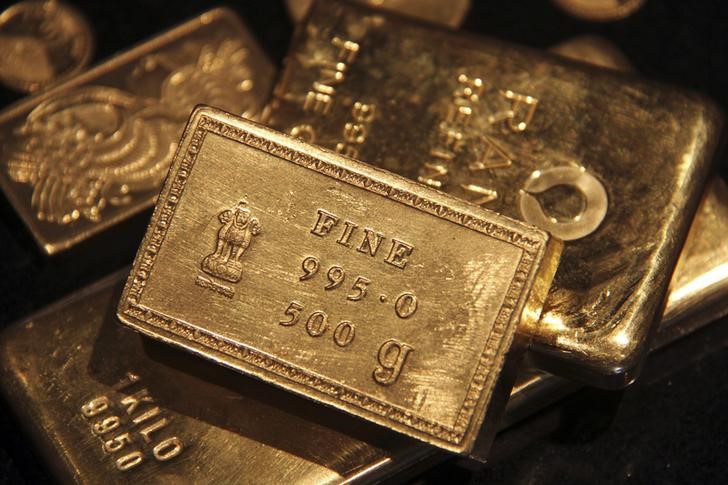By Ambar Warrick
Investing.com-- Gold prices steadied below key levels on Wednesday as investors awaited more cues on the global economy from a swathe of readings due this week, while a recovery in the dollar also kept metal markets subdued.
Markets awaited trade and inflation data from China, third-quarter GDP figures from Japan and Australia, and most importantly, U.S. producer inflation data due later in the week.
The U.S. producer price index for November, due on Friday, will be closely watched for any cues on the path of inflation in the country. Given that the Fed signaled that their terminal interest rate will largely track inflation, markets grew more cautious ahead of the reading.
Spot gold traded around $1,770.33 an ounce, while gold futures fell 0.1% to $1,782.35 an ounce. Both instruments are trading down for the week, as stronger-than-expected U.S. data pushed up fears of inflation remaining sticky in the country.
The dollar recovered sharply from a five-month low this week, and weighed on most commodities that are priced in the greenback.
The Fed is set to meet next week in its final meeting for the year. While the bank is expected to hike interest rates by a relatively smaller margin, it has warned that its benchmark rate could rise to higher-than-expected levels next year.
Metal markets were battered by a sharp rise in U.S. interest rates this year, as higher yields drove up the opportunity cost of holding non-yielding assets.
With the Fed signaling no immediate end to its rate hiking cycle, this trend is likely to continue in the near-term. Markets are awaiting more cues from the central bank next week.
Still, positive signals from China helped industrial metals. Copper prices shrugged off initial losses and rose 0.7% on Tuesday, while nickel prices rallied 1.2%.
Copper futures were flat around $3.8213 a pound in early Asian trade on Wednesday.
Several major Chinese cities scaled back COVID-linked movement curbs and testing mandates in recent days, amid growing public ire towards the government’s strict zero-COVID policy.
While markets are now positioning for an eventual withdrawal of the policy, such a scenario may be delayed, given that China is experiencing its worst COVID outbreak in terms of daily infections.
Still, the prospect of a Chinese reopening spurred a strong recovery in industrial metals, given that the country is one of the world’s largest commodity importers.
